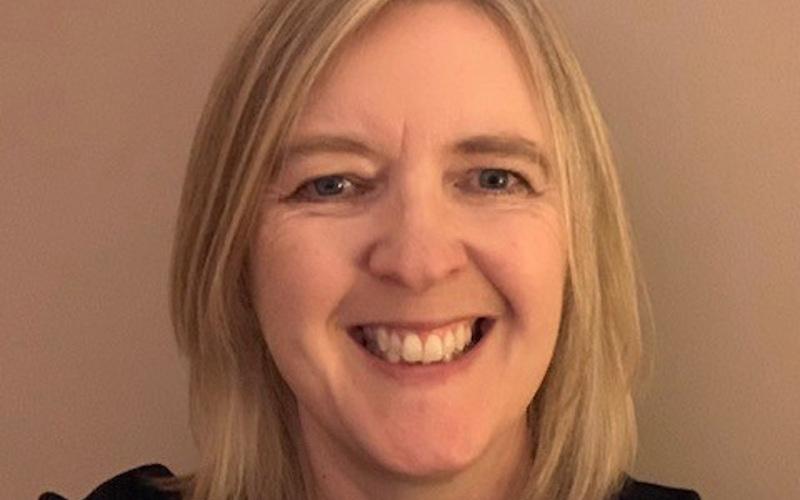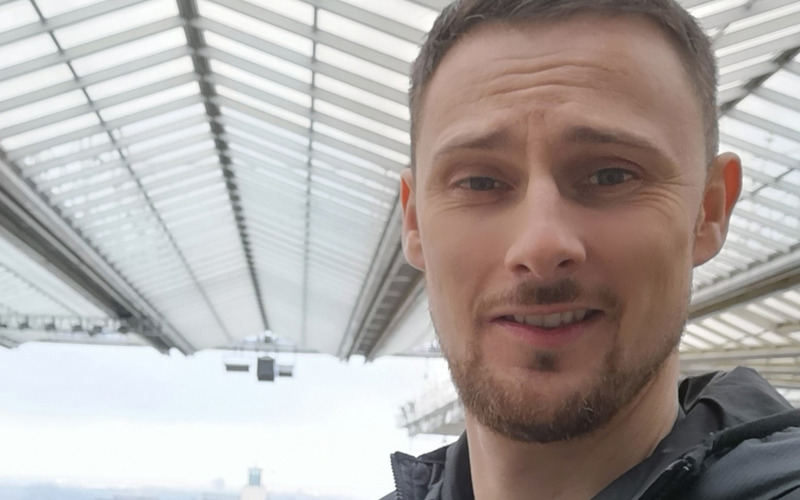
Unlocking the potential of synthetic data
Reflecting on how synthetic data can plug the data gap.
Dr Lynne Adair
19 Dec 2022

Research Data Scotland
05 May 2023
Our interview series shines a light on what it’s like to work at RDS. Meet Dr Lynne Adair, Research Data Scotland Data Curation Manager.
I’m the Data Curation Manager within the Data team at Research Data Scotland (RDS), working with others internally and our partner organisations to improve access to public sector data for research in the public good. My role ultimately is to ensure that data is ingested, curated and updated appropriately. In April 2023, we started working with Administrative Data Research Scotland (ADR Scotland). The new data curation team will initially focus on updating existing ADR Scotland datasets starting with Education, including the Pupil Census.
I lead on synthetic data and my first few months in the role involved speaking to colleagues about their synthetic data use and aspirations. Based on this, we developed a draft synthetic data strategy for Scotland that aims to utilise synthetic data to improve and speed up access to public sector data. I have now set up a working group, run a user workshop, am planning a synthetic data fund and am working with others across the UK synthetic data landscape to help co-ordinate work around public engagement.
I’m not sure there is any such thing as a typical day! This week, for example, I attended our monthly in-person RDS day at Bayes, met with our Public Engagement Manager to prepare for presenting to the public panel, have been managing a new data team member, attended the UK synthetic data group meeting, wrote a conference abstract, planned a meeting with an MSc student for a project I’m supervising and had my annual review, amongst other things.
“My PhD used linked administrative data to look at inequalities in lung cancer care and it took two years to get hold of any data – a situation that will be familiar to many researchers and one that RDS is hoping to address.”
I’ve had a fairly convoluted career pathway to RDS. I have degrees in Medical Microbiology (BSc and MPhil) and found I enjoyed the data analysis side rather than lab work. I worked in analyst roles and then professional services in academia. At age 40 (in what could be termed a midlife-crisis) I decided to retrain and did an MSc and PhD in epidemiology.
My PhD used linked administrative data to look at inequalities in lung cancer care and it took two years to get hold of any data – a situation that will be familiar to many researchers and one that RDS is hoping to address. When I moved back to Edinburgh in 2016, I joined the Scottish Centre for Administrative Data Research (SCADR – then known as ADRC-S). There, I worked as both a researcher using the National Safe Haven and in research support, developing the Introduction to Admin Data course with colleagues and delivering Safe Researcher Training.
I also worked in research support at the Scottish Longitudinal Study and created synthetic datasets for researchers when access to Safe Haven data was difficult during the pandemic. So I very much understand the problems researchers have with accessing administrative and public sector data and how synthetic data can be used to help with this.
As a sad data geek, spending hours coding is something I really enjoy. I don’t work directly with data as much now that I’m in a managerial role however, and one of the challenges of my current role has been in pinning down what it entails day-to-day – an occupational hazard when joining a relatively young organisation! A highlight has been in developing the synthetic data strategy for Scotland, and really starting to move forward the application of synthetic data to improve data access.
“I’ve been lucky enough to work with some really great women in data. My PhD supervisor Dr Jean Adams (now a Professor at Cambridge) is one of the smartest people I know and showed me that you can get ahead and be an excellent research leader without being a loud extrovert.”
It has taken RDS a bit of time to establish our role in a busy data landscape and demonstrate the added value that we can bring. Now, in our second year as an independent charity, I think we are in a place where we can take a big-picture view and start bringing together a lot of different players to promote real change in the system. Linking public sector datasets can enable so much interesting research to take place and I’m hoping RDS will fulfil its aim to improve the availability of datasets and the speed to access them, to allow this research to flourish in Scotland.
I’ve been lucky enough to work with some really great women in data. My PhD supervisor Dr Jean Adams (now a Professor at Cambridge) is one of the smartest people I know and showed me that you can get ahead and be an excellent research leader without being a loud extrovert. I also greatly admire Professor Gillian Raab, co-creator of synthpop - a package for the programming language R that allows users to create synthetic versions of confidential data for use in research. Gillian is totally leading the way for older women in data, although I can only aspire to her brilliance.
Related content

Reflecting on how synthetic data can plug the data gap.
Dr Lynne Adair
19 Dec 2022

Our interview series shines a light on what it’s like to work at RDS. Meet David Jack, Research Data Scotland Data Acquisition/Sourcing Manager.
Research Data Scotland
17 Apr 2023
To stay updated with Research Data Scotland, subscribe to our mailing list or follow us on Twitter and LinkedIn.
